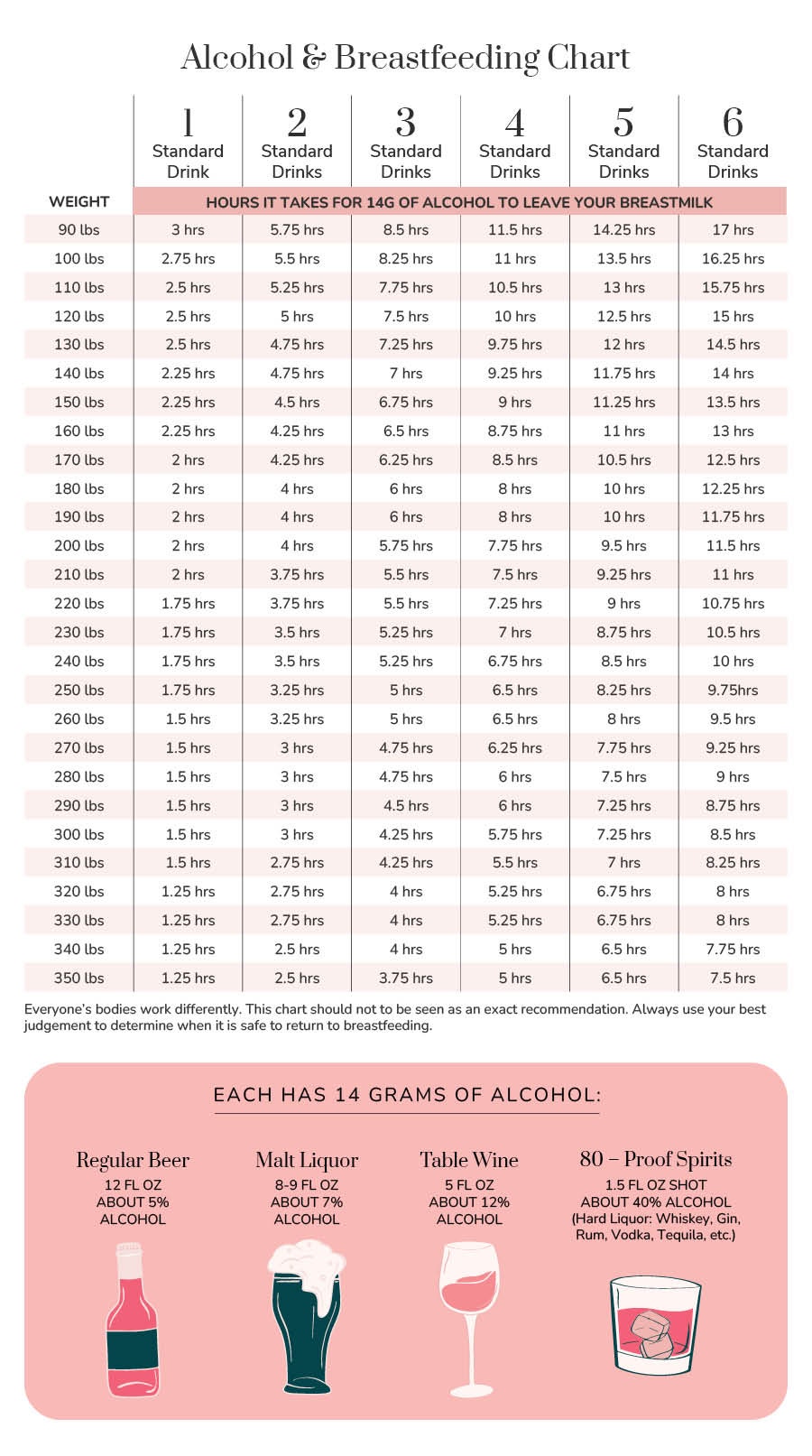Understanding how alcohol use during breastfeeding affects both you and your baby is important. After nine months of pregnancy without your favorite alcoholic beverage, it’s natural to want to enjoy an occasional drink now that your little one is here. By learning about the effects of maternal alcohol consumption—including how it transfers into human milk and how it may impact your breastfed baby—you can feel confident making safe and loving choices.
Can I Drink Alcohol While Breastfeeding?
Many new parents wonder if it’s safe to drink while breastfeeding. The short answer depends mainly on the amount of alcohol being consumed and the timing of your feedings. The safest option for breastfeeding mothers is to avoid alcohol entirely. That being said, small amounts of alcohol—such as one pint of beer or one glass of wine per day—are not known to be harmful to a breastfed baby, according to the United States Centers for Disease Control and Prevention (CDC). To reduce exposure—especially if you have more than one drink—wait at least 2 hours for each standard drink before breastfeeding again.
How Alcohol Transfers into Human Milk
The amount of alcohol in breast milk closely reflects maternal blood alcohol levels. As your blood alcohol rises or falls, so does the milk alcohol level.
-
Time of Peak Milk Alcohol Levels: Alcohol typically peaks in mother’s milk about 30–60 minutes after drinking, depending on how quickly alcohol was consumed and other factors.
-
Clearance Timeline:
-
1 drink: ~2–3 hours for blood alcohol levels to return to zero.
-
2 alcoholic drinks: ~4–5 hours.
-
3 drinks: ~6–8 hours or longer.
-
Larger amounts of alcohol take progressively more time to clear.
-
-
Factors Affecting Alcohol Clearance:
-
Body weight and individual metabolism
-
Amount consumed and the alcohol content of the drink
-
Whether you drank on an empty stomach or with food
-
Effects on Supply and Your Baby
-
Milk Supply and Letdown: Large amounts can interfere with the milk ejection reflex (milk letdown), resulting in baby’s frustration or less milk intake during feedings, decreasing your supply over time.
-
Effects on Infants: Heavy drinkers or those with frequent alcohol intake may subject their infants to higher alcohol exposure, which can affect your baby’s sleep patterns, weight gain, and potential delayed motor development.
-
Amount Matters: Even small amounts of alcohol pass into milk, so spacing feedings and allowing time for it to clear remain important for your baby’s health. Parents should monitor for any side effects in their infant.
Practical Guidelines for Breastfeeding Mothers
-
Moderate Your Intake: Limit yourself to one alcoholic beverage or less per day.
-
Eat Something First: Enjoying a snack or meal with your drink helps slow the effects of alcohol absorption and lowers peak blood alcohol levels.
-
Wait Before Feeding: Allow at least 2 hours per drink before breastfeeding to ensure blood alcohol level is decreasing.
-
Plan Ahead:
-
If you know you’ll be drinking, express milk beforehand for your baby. It’s a good idea to have expressed milk ready for feedings, just in case.
-
While you may need to pump for your own comfort and to maintain milk supply, pumping after drinking does not decrease the level of alcohol in your milk any faster—it leaves your milk at the same rate as it leaves your bloodstream.
-
You can label and freeze this milk for non-feeding purposes, such as a milk bath.
-
Caring for Your Baby
The greatest concern is safety. Consuming too much alcohol can impair your coordination, awareness, and ability to take care of your baby. If you plan to drink more than a moderate amount or are attending a social event where drinking is involved, arrange for a sober adult to care for your baby until you can. Knowing how the effect of alcohol can impact your milk production, your baby, and your own well-being helps you make the best choices for your family.
While moderate alcohol use can be compatible with breastfeeding when done mindfully, be cautious about drinking larger amounts of alcohol or binge drinking. If you have concerns about your alcohol use, reach out for support from your healthcare provider or lactation consultant—help is available, and you don’t have to navigate it alone.
Disclaimer: Our classes and accompanying materials are intended for general education purposes and should not replace medical advice. For personalized recommendations, please consult your healthcare provider and/or lactation consultant.





More Pregnancy Care Guides
Combination Feeding
Breast Milk Sensitivity
Health Benefits of Breastfeeding for Mother and Baby
Breastfeeding with Postpartum Depression
Safe Medications While Breastfeeding